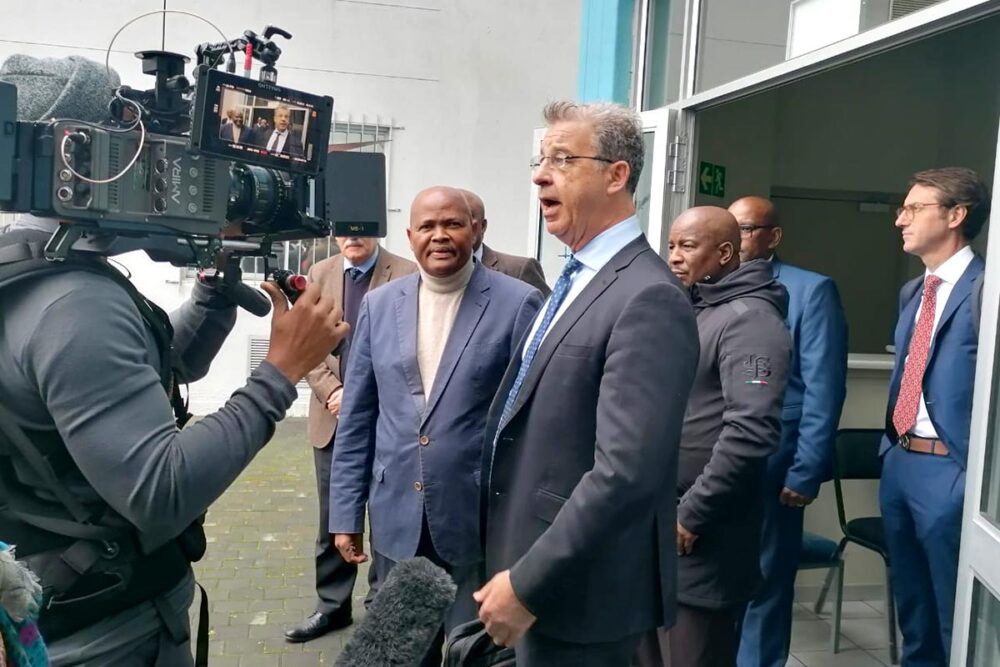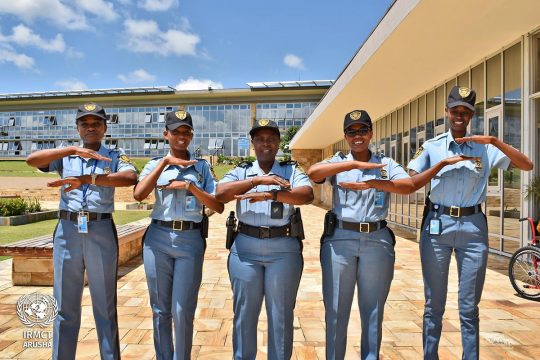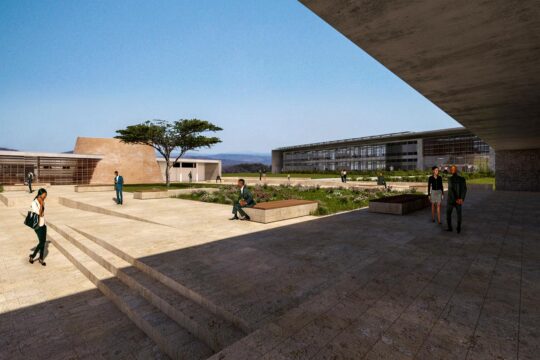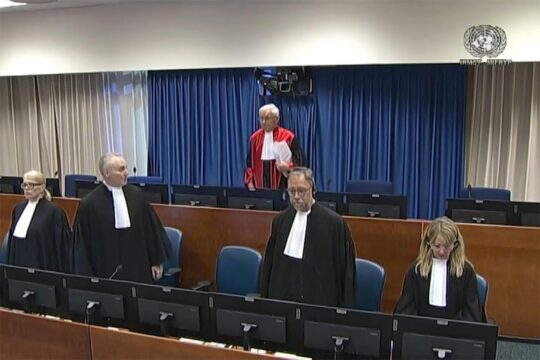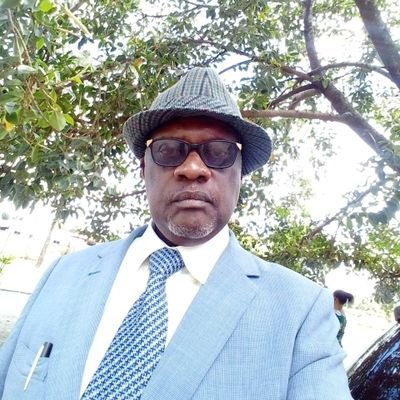Rwandan fugitive Fulgence Kayishema was due to be transferred to his country as soon as he was arrested. In 2012, his case was transferred to Rwanda by the UN tribunal in Arusha, along with several others. However, the most recent arrest warrant against him, made public on September 7 after his arrest in South Africa and dated 2019, states that he is to be transferred to the Mechanism responsible for the residual functions of the International Criminal Tribunals (IRMCT), which has taken over from the Arusha tribunal. The newly-published document clearly states it was Prosecutor Serge Brammertz who requested in a confidential application that Kayishema be transferred to the Mechanism "instead of the Republic of Rwanda".
Why was this? That's what we tried to find out.
Final destination changed discreetly
Charged by the International Criminal Tribunal for Rwanda (ICTR) in Arusha with genocide, complicity in genocide, conspiracy to commit genocide and extermination as a crime against humanity, the former judicial police inspector in Kivumu, a former commune in the ex-prefecture of Kibuye, was arrested on May 24, 2023 at a farm in Paarl. The 62-year-old was living in this town in the Western Cape province of South Africa under the false identity of Donatien Nibashumba, a Burundian national.
He is accused in particular of having taken part in massacres at the Catholic church in Nyange that left around 2,000 people dead. Wanted by international justice, Kayishema had been on the run for some 20 years. After his case was transferred to Rwanda in 2012, the ICTR's arrest warrant of 2012, followed by that of the Mechanism in 2014, clearly called on UN Member States to "search for, arrest and transfer to the custody of the National Public Prosecution Authority of the Republic of Rwanda Fulgence Kayishema". But the new arrest warrant asks states to arrest him and hand him over "to the custody of the Mechanism".
A demand from South Africa?
The decision, dated September 7, states that “on 7 March 2019, the Prosecutor of the Mechanism requested an amended warrant of arrest providing for Kayishema’s immediate arrest and transfer to the Mechanism, instead of Rwanda, on the basis that a key partner who could assist in the tracking, location and apprehending of Kayishema could no longer assist so long as the arrest warrant provided for his transfer to Rwanda". The same decision states that the request was granted.
Justice Info wanted to know the identity of this key partner. When contacted, the person in charge at the prosecutor's office in Arusha, Thembile Sogoete, did not wish to be more specific. However, based on the place of arrest and the subsequent official requests from the South African authorities to transfer Kayishema to Arusha, it is safe to assume that this key partner is South Africa. Kayishema's South African lawyer, Juan Smuts, told Justice Info that "an application was launched by the Deputy Director of Public Prosecutions essentially for Mr. Kayishema to be transferred to the custody of the Arusha Branch of the United Nations International Residual Mechanism for Criminal Tribunals, Tanzania".
Friction between Pretoria and Kigali
It is not yet clear whether South Africa refused to transfer the accused to Kigali out of concern for judicial fairness or as a result of diplomatic friction between the two countries.
Professor André Guichaoua, a specialist in Rwanda and former expert witness for the ICTR prosecutor's office, points out that "relations between South Africa and post-conflict Rwanda have evolved amid tensions created by the presence of large numbers of Rwandan refugees in the second half of the 1990s. At first it was Hutu opponents and later, as President Paul Kagame monopolized power in Rwanda, Tutsi opponents". Then followed "expulsions of diplomats, de facto or informal severance of diplomatic relations". And, he recalls, there was the attempted assassination in 2010 of a major figure among Kagame's opponents, Kayumba Nyamwasa, Chief of Staff of the Rwandan Patriotic Army; the 2013 assassination in Johannesburg of Patrick Karegeya, Rwanda's head of external intelligence; and that of Camir Nkurunziza, a former officer in the presidential guard who opposed the current government and was shot dead in 2019 in Cape Town.
Guichaoua says relations warmed briefly after current South African president Cyril Ramaphosa came to power in 2018. More recently, however, a new turning point has “affected relations between the countries of the Southern African Development Community (SADC, which includes South Africa, the Democratic Republic of Congo and Tanzania) and Rwanda". In July 2023, Pretoria and Kinshasa made a commitment, via the SADC, "to strengthen their cooperation on security issues, particularly in eastern Congo with regard to the war waged by the M23 with Rwanda’s support, which has displaced a million people", explains Guichaoua.
In this context, says the expert, "South Africa now has no reason to do Rwanda any favours by transferring an accused to it. Tanzania, another eminent member of the SADC, does not approve of such a transfer either, as it is anxious to prolong the existence of its judicial infrastructure at the Arusha tribunal and the jobs of its staff and, more generally, the final opportunity to postpone once again the closure of the Mechanism after a premature end to the trial of Félicien Kabuga".
"The procedure is still in early stages"
According to the South African press, Kayishema, who was initially arrested on May 24 and detained "for violating the country’s immigration laws" was re-arrested on August 15 "in response to a UN tribunal’s request for his extradition to Tanzania to stand trial at its genocide court in Arusha".
When questioned by Justice Info, Kayishema’s wife Beatrice Nyiratabaro stated that "we are still before the court of first instance for other matters. We are not yet before the High Court. We are not aware of the Arusha charges against him”. For the moment, confirms lawyer Juan Smuts, the proceedings before the court of first instance concern "local charges currently levelled against my client". That is, immigration irregularities. At the last hearing, held in August, the prosecution told the court it had not yet finalized its investigation into this immigration case, Smuts explained.
"The proceedings in the High Court of South Africa are currently in their infancy stage, as at the previous hearing we merely set a timeline for the way forward up to the next hearing being 1 November 2023," he says. Smuts adds that “South African authorities have launched a motion in the High Court of South Africa for, inter alia, an order that my client be transferred to the custody of the Arusha Branch of the Mechanism, Tanzania, and therefore not to Rwanda”.
Can Kayishema save the white elephant?
There remains a question that no one wants to answer.
Once it has obtained his transfer by the "key partner" that didn’t want to satisfy Kigali, will the UN Mechanism redirect Kayishema to Rwanda despite everything, or will it be tempted to keep the case in order to save the jobs of Arusha’s white elephant? Despite repeated requests, the Mechanism office of the prosecutor preferred to remain silent. Its spokesman, Keith Powell, gave us a fact sheet on the Kayishema case, which states that "Kayishema should be transferred to Rwanda to stand trial" – hardly clearing up the current ambiguity.
The law of silence also prevails in Kigali, where the spokesman for the Attorney General, Faustin Nkusi, passed the buck to Arusha: "You can contact the Attorney General of the IRMCT, because it is they who are following developments in the South Africa case."
In 2020, the Arusha branch alone had 200 employees and an annual budget of 40 million dollars. The Mechanism's spokesperson would not give figures for the current staff and the impact that the suspension of the Kabuga trial may have on human resources. However, on October 4, Mechanism Registrar Abubacarr Marie Tambadou called a meeting of the institution's staff to inform them that all posts relating to the Kabuga trial would be scrapped. The prosecution office’s staff had been increased by 10% for the trial of the old Rwandan. These staff are at risk.
Will Kayishema be able to preserve their jobs? The total budget for the Mechanism in 2023 is 81,945,300 US dollars, or nearly 78 million euros at the current rate. For next year, Powell says that "the budget process is still underway and will not be finalized until it is approved by the UN General Assembly in the autumn".
But even though South Africa and the IRMCT prosecutor have agreed that Kayishema should be tried in Arusha, the accused apparently does not want to facilitate this. "My client has opposed the said request for his transfer to the custody of the Arusha Branch of the Mechanism, Tanzania," says his lawyer Smuts, who did not specify the reasons put forward by his client. "My client seeks a fair trial, but not in Arusha, Tanzania", the lawyer added, without specifying where his client would like to be tried.
The decision is still pending before the High Court of South Africa.


